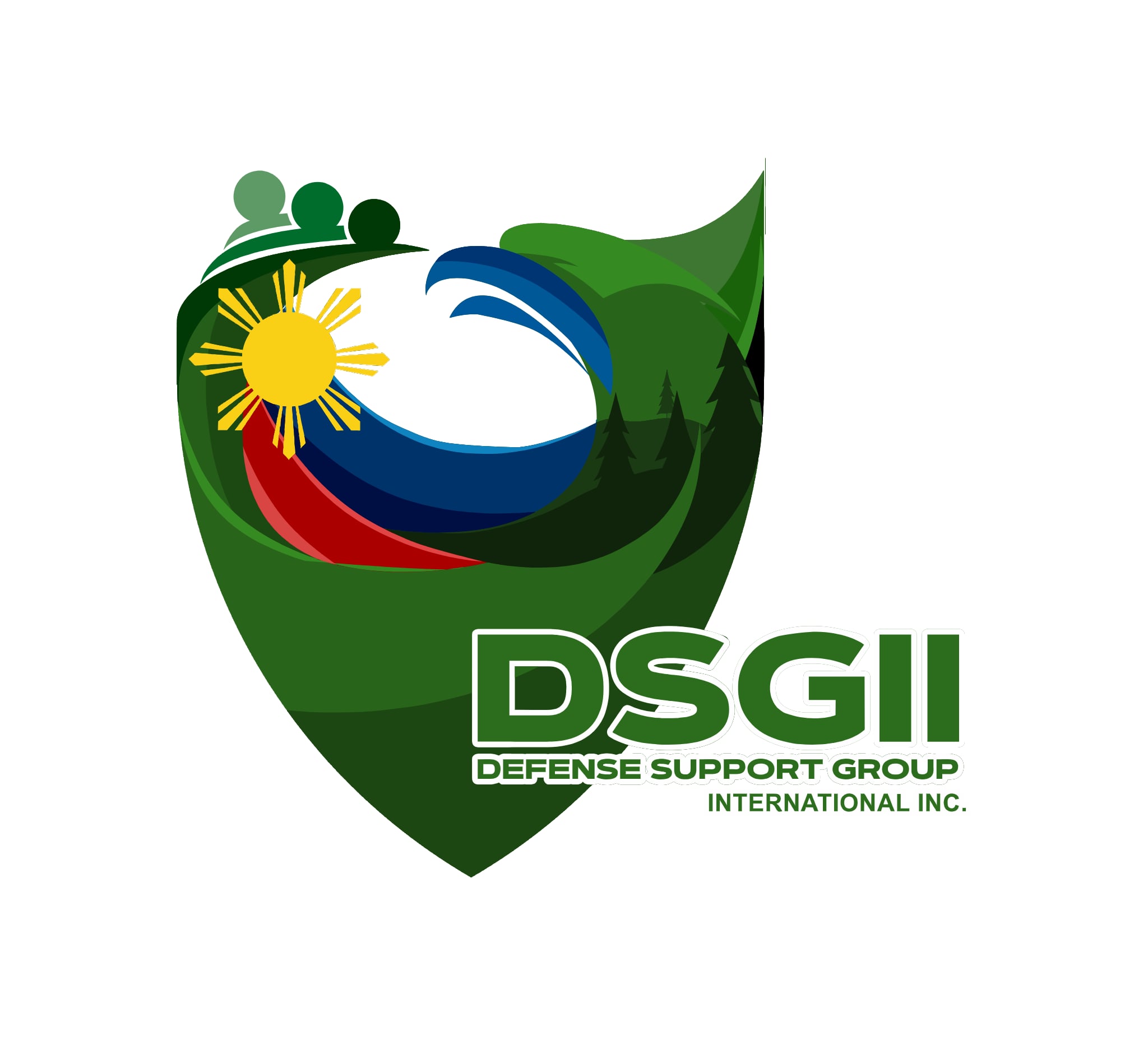- 1.4 Scope of Operations: Geographical focus (Ilocos Region, Northern Luzon context) and thematic areas (DRRM, Livelihoods, Youth, Women, CBOs/Leaders).
DSGII (Defense Support Group International Inc.) focuses its operational scope on the Ilocos Region in Northwestern Luzon, Philippines. While our work may occasionally involve cross-regional coordination for broader advocacy or learning initiatives, our primary interventions and direct beneficiary engagement are concentrated within this region’s four provinces: Ilocos Norte, Ilocos Sur, La Union, and Pangasinan.
1.4.1 Geographical Focus:
- Primary Area: The four provinces of the Ilocos Region: Ilocos Norte, Ilocos Sur, La Union, and Pangasinan.
- Specific Concentration: Our programs are typically concentrated in rural and coastal municipalities, and identified vulnerable barangays within these provinces that are highly susceptible to natural hazards (typhoons, floods, landslides, coastal erosion) and face socio-economic challenges. Our head office is strategically located in Bacnotan, La Union, providing a central hub for operations across the region.
- Targeted Communities: We prioritize working with communities identified through vulnerability and capacity assessments, ensuring that resources are directed to areas with the greatest need and potential for sustainable impact.
1.4.2 Thematic Program Areas:
DSGII’s operational activities are structured around its four core program pillars, designed to holistically address the needs of its target beneficiaries:
- Community Resilience to Climate Change and Disasters (DRRM & CCA):
- Implementing community-based disaster risk reduction and management (CBDRRM) training.
- Facilitating vulnerability and capacity assessments (VCAs) and local DRRM planning.
- Promoting climate change adaptation (CCA) practices and nature-based solutions.
- Supporting the establishment and strengthening of early warning systems and evacuation protocols.
- Engaging youth in climate action and disaster preparedness.
- Sustainable Livelihoods and Economic Empowerment:
- Providing skills training and capacity building for diversified and climate-resilient livelihoods (e.g., sustainable agriculture, aquaculture, handicrafts, small enterprise development).
- Facilitating access to microfinance, market linkages, and value chain development for vulnerable households, smallholder farmers, and fisherfolk.
- Promoting innovative and environmentally sound income-generating activities.
- Local Governance and Community-Based Organization Strengthening:
- Enhancing the capacity of local government units (LGUs) and community-based organizations (CBOs) in participatory planning, project management, and transparent governance.
- Facilitating multi-stakeholder dialogues and partnerships for local development.
- Supporting the development and implementation of local development plans that integrate DRRM, CCA, and sustainable livelihood components.
- Youth and Women’s Empowerment:
- Implementing leadership and civic engagement programs for youth, fostering their active participation in community development and policy advocacy.
- Providing life skills training and psychosocial support for youth and women.
- Supporting women’s groups in economic ventures, leadership roles, and promoting gender equality within communities.
1.4.3 Target Beneficiaries:
Our programs are specifically designed to serve:
- Vulnerable Households: Particularly those in poverty-stricken, geographically isolated, and climate-exposed areas.
- Smallholder Farmers and Fisherfolk: Who are highly dependent on natural resources and are often first impacted by climate variability and environmental degradation.
- Women: Focusing on their economic empowerment, leadership development, and critical role in household and community resilience.
- Youth: Engaging them as active agents of change, fostering leadership, skills development, and civic participation.
- Community-Based Organizations (CBOs) and Local Leaders: Strengthening their capacity to effectively lead and sustain local development initiatives.
1.4.4 Operational Approach and Capacity:
DSGII employs a community-based, participatory, and partnership-driven approach. We work directly with communities, facilitating their active involvement in all stages of project cycles. We foster strong collaborations with LGUs, national government agencies, academic institutions, and other civil society organizations to maximize resource utilization and ensure sustainability.
Our operational capacity includes:
- A dedicated team of program managers, field officers, and technical specialists.
- Established administrative and financial systems compliant with national regulations and international best practices.
- A growing network of community volunteers and local partners.
- Ability to mobilize rapid assessment and response teams during emergencies within our operational areas.
This defined scope allows DSGII to concentrate its expertise and resources, ensuring deep, impactful, and sustainable development outcomes for the Filipino people in the Ilocos Region.
- 1.5 Purpose and Scope of the Operations Manual: How the manual guides all staff and operations.
The DSGII Operations Manual is a foundational document that consolidates the organization’s policies, procedures, and guidelines across all its functional areas. Its primary purpose is to ensure the efficient, effective, and consistent delivery of DSGII’s development programs, while upholding the highest standards of transparency, accountability, and ethical conduct in serving the Filipino people.
1.5.1 Purpose of the Manual:
- Standardization and Consistency: To establish clear, uniform policies and procedures that ensure consistency in operations across all programs, departments, and field activities, regardless of staff changes.
- Guidance and Reference: To serve as a comprehensive reference tool for all Board members, management, staff, and volunteers, guiding them in the execution of their duties and responsibilities effectively and in alignment with DSGII’s mission.
- Accountability and Compliance: To define roles, responsibilities, and reporting lines, promoting accountability at all levels. It ensures compliance with relevant Philippine laws and regulations (e.g., SEC, DSWD, BIR), donor requirements, and internal governance principles.
- Efficiency and Quality Assurance: To streamline processes, reduce errors, and improve operational efficiency. It supports the maintenance of high-quality standards in program design, implementation, monitoring, and evaluation.
- Onboarding and Training: To facilitate the orientation and training of new staff and volunteers, enabling them to quickly understand DSGII’s operational framework, culture, and expectations.
- Risk Mitigation: To document approved procedures for managing operational, financial, and security risks, ensuring a proactive approach to potential challenges and promoting staff safety.
- Organizational Learning and Adaptability: To provide a basis for continuous review and improvement of processes, fostering an environment of learning and adaptability in response to evolving contexts and needs.
- Transparency: To articulate DSGII’s internal workings, reinforcing our commitment to transparency with stakeholders, including beneficiaries, partners, and donors.
1.5.2 Scope of the Manual:
The Operations Manual encompasses the entire spectrum of DSGII’s activities and applies to all individuals associated with the organization, including:
- All DSGII Staff: From executive management to field personnel, full-time, part-time, and contractual employees.
- Board of Directors: For governance, oversight, and strategic decision-making.
- Volunteers and Consultants: Engaging with DSGII’s programs and operations.
- All Programmatic and Functional Areas: Covering every aspect of DSGII’s work, including:
- Organizational governance and legal compliance.
- Human resources management (recruitment, performance, conduct).
- Financial management (budgeting, accounting, procurement, grant management).
- Program development, implementation, and monitoring & evaluation.
- Administrative and logistical support.
- Risk management, safety, and security protocols.
- Communications and external relations (partnerships, advocacy).
- Information technology and data management.
This manual is a dynamic document, subject to periodic review and revision by the Executive Management and approval by the Board of Directors, ensuring it remains relevant, accurate, and effective in supporting DSGII’s mission in the Ilocos Region and serving the Filipino people.




